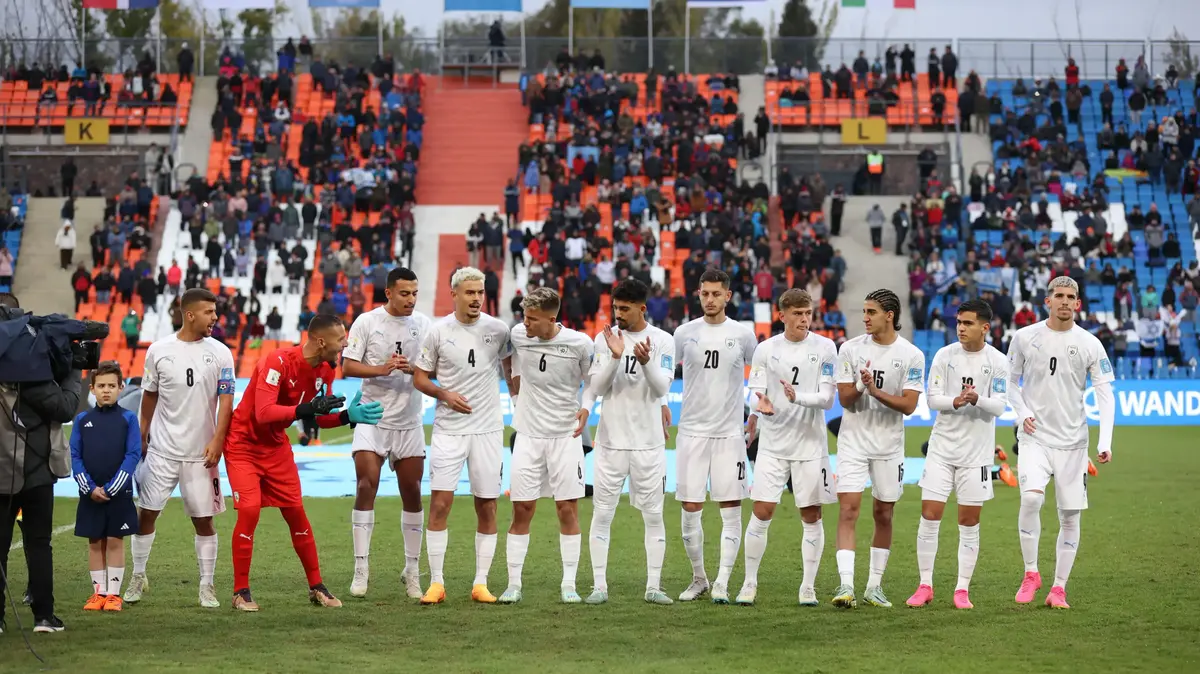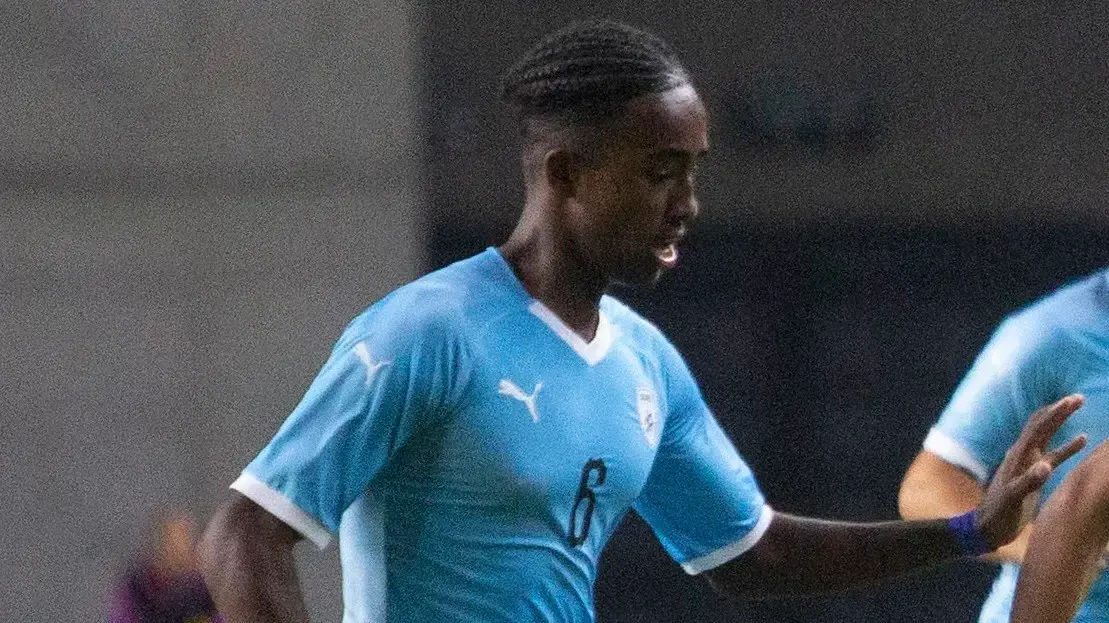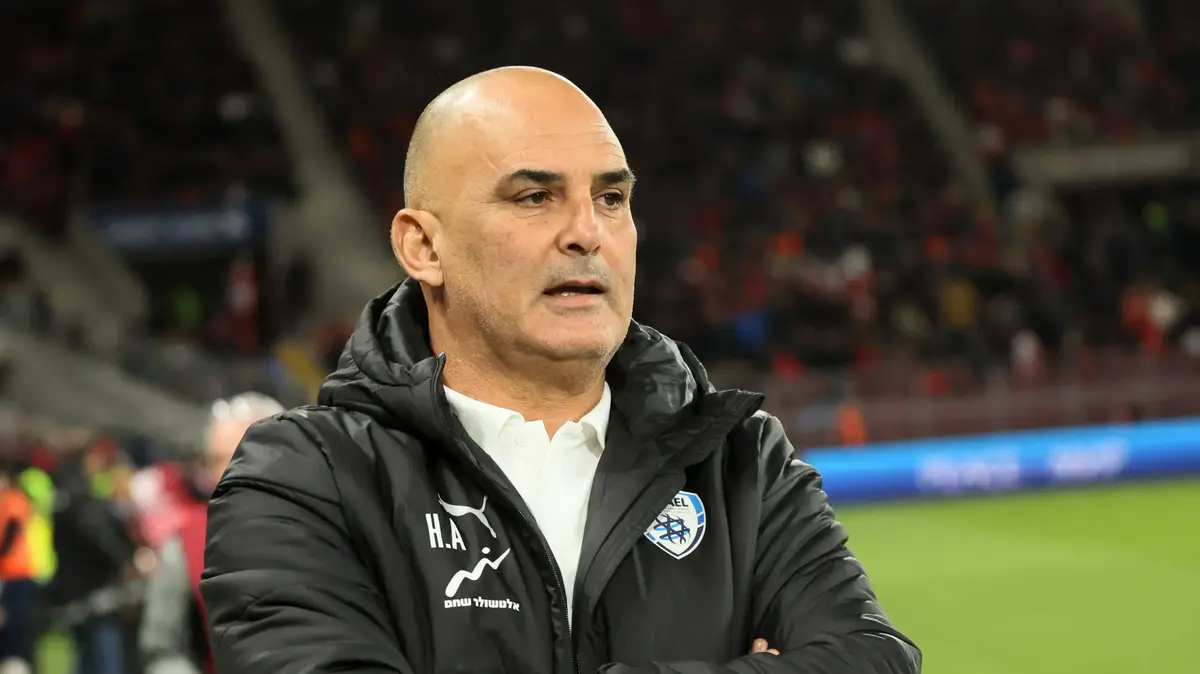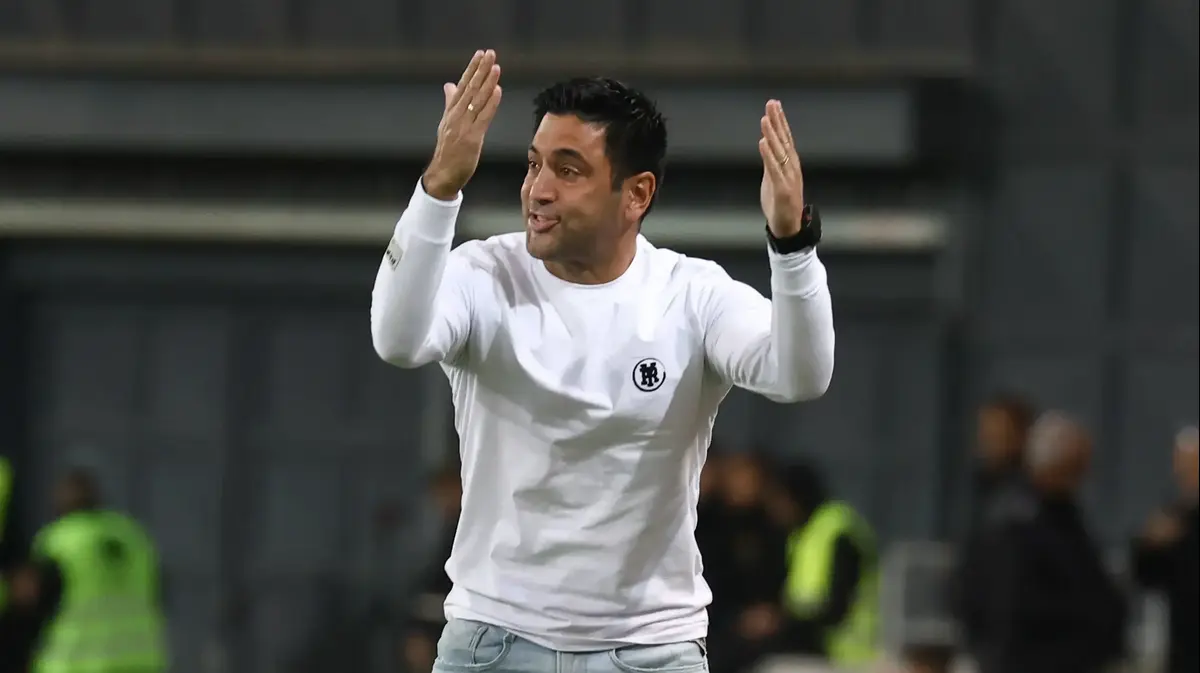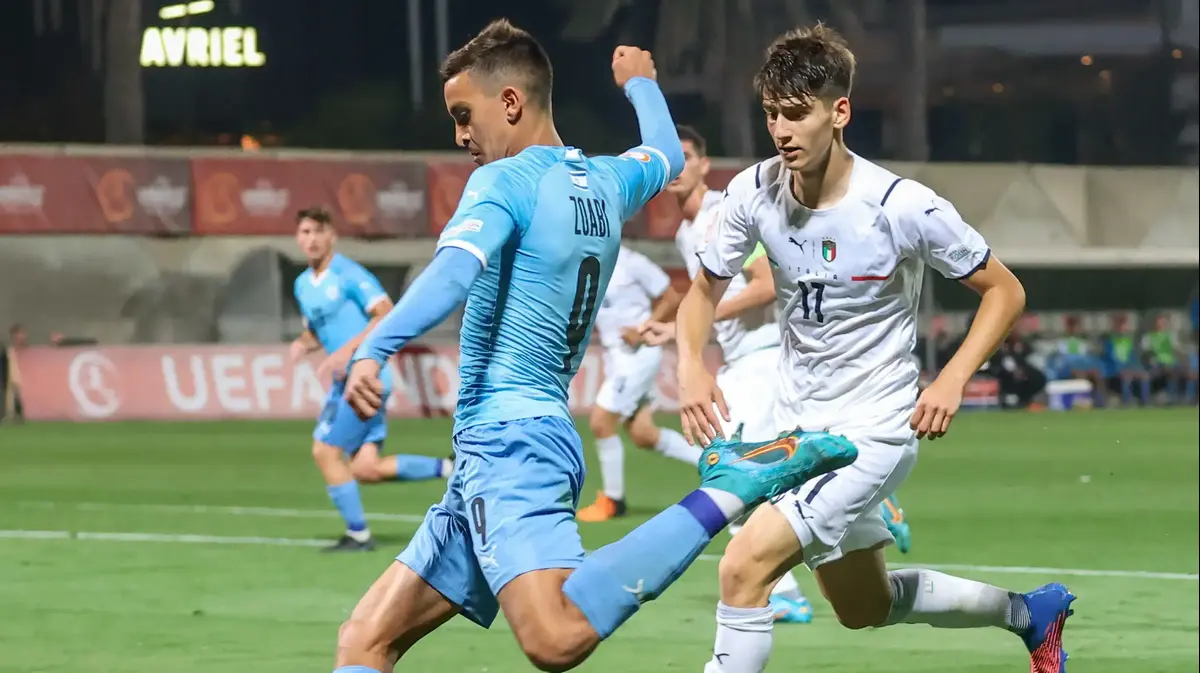Ticked: Sports Events Recap Clip, 7.6 (Sports1)
20 June 2015. When Serbia's under-20 team took to the pitch for the World Cup final in Auckland, New Zealand, it was 7:00 a.m. in Belgrade. "Welcome to the best morning show in the history of Serbian television," the presenter began the broadcast. The young Serbs met the formidable Brazil. Stanisa Mandić scored first in the 70th minute, but after three minutes Andreas Pereira, now a Fulham player, equalised and the game went to extra-time. Two minutes before the penalty, the Serbs went on the offensive. Nemanja Maksimovic found himself alone in front of the goalkeeper and poked a flat ball into the net. Serbia went into a frenzy.
Thousands took to the streets, singing, dancing and jumping into fountains. They celebrated what they described as the greatest day in the history of Serbian football. When the team returned home, 50,000 people celebrated with it in Belgrade's main square. "This was not only a victory for young people, but seen as a light at the end of the tunnel for Serbian football," wrote journalist Sasha Ibroulli. The Serbs saw this day as the day of independence of their football. What happened next is a lesson for every young player and what hopefully will happen to Ofir Haim's wonderful group as well. There are many similarities between Serbia 2015 and Israel 2023 and one conclusion is clear: our young people need to leverage success and get out.
From them we need to learn. Serbia's youth team in 2015 (Photo by Getty Images, Hannah Peters)
Compared to football countries with a tradition of success, the World Cup is everything for countries that only dream of being part of a truly big event. Before that tournament, Veliko Paunović gathered the team and staff and played videos of Yugoslavia's 1987 World Youth Championship win. He himself was 10 years old at the time. His actors grew up on the fairy tales of such actors as Zvonimir Boban, Predrag Mijatović, Davor Shuker and Robert Prosinecki. "That's what we're going to achieve," he told them. We're going to be world champions." They believed him and followed him with their eyes closed.
A year earlier, Paunovic had led the same team to the semi-finals of the Euros, where they succumbed on penalties to Portugal. Throughout the tournament, he continued to exude belief: "I believe we can send a message in this tournament. A message of unity and passion, of playing with the heart." Sound familiar? Serbia opened the tournament with a loss to Uruguay, but finished the group stage in first place thanks to victories over Mali and Mexico. That's where the drama began. A winning goal in the 118th minute in the eighth round against Hungary, a penalty shootout victory over the United States in the quarterfinals and again a victory in extra-time over Mali in the semifinals. Before Brazil, Paunovic told the players: "God gives the most difficult tasks to His best students. We're up to the task." You already know how it ended.
It was a very talented team with a huge star in the form of Sergej Milinkovic-Savić, but it is interesting to note what happened next. On the eve of the tournament, the squad consisted of four players who had played outside Serbia. One of them is Milos Velikovic, who was born and raised in Switzerland and joined Tottenham's youth squad at the age of 16. Milinkovic-Savic was bought by Belgian side Genk after the Euros and Nemanja Maksimovic joined Astana a few months before the tournament in New Zealand. After the win, Paunovic urged his players to go outside and conquer the big stages. And that's exactly what happened.
Pay attention to the big bang: goalkeeper Predrag Rajkovic was bought by Maccabi Tel Aviv (remember the cliché "the best in the world for his age?"), Milan Gaić moved to Bordeaux, Nemanja Antonov to Grasshoppers, Sasha Zedilar to Olympiacos, Serjan Babic to Real Sociedad, Ivan Shapunić soon found himself at Benfica, where Andrija Živković also arrived, Miat Gacinovic was bought by Frankfurt, Marko Grujić was signed by Liverpool and Milinkovic-Savic himself was bought by Lazio. All this in a period of several months since the championship.
More in Walla!
The leading HMO presents: The services that will make your life easier
In collaboration with Clalit
In order to leverage their success, it is better for them to go abroad. Israel national under-20 team (Photo by Getty Images, Marcio Machado/Eurasia Sport Images)
FIFA World Cup 2023: The journey of the youth team
On the way to the end of the World Cup: where do we go from here?
Uruguay striker: "Israel is the surprise of the tournament, a tough team"
Determined fighters in blue: Meet the Uruguay team that awaits Israel in the semi-finals
Serbia's senior national team has since reached the World Cup twice. In Qatar, there were seven representatives from Paunovic's magical team. While many of the players of that big bang did not survive long at the top of Europe, the bottom line has not changed: Serbian football was reborn in June 2015. "We must not stop now. We need to keep working to replicate this achievement on bigger stages," Paunovic said after the final. "I am convinced that the players of this generation will play a major role in the senior team and big European clubs in the next 10 years. It's their time to grow, forget and look forward."
It doesn't matter if our team is world champion or finishes fourth, Israel should look at this tournament as the birthday of our football. Ofir Haim and his actors fascinated Medina to the screen and put an end to all the annoying stigmas about the Israeli actor who deserves nothing. Now, it's time to internalize the message Paunovic conveyed to his players. Now is the time to leverage success. The summer of 2023 should be the big bang for the young Israeli footballer out.
It is important to understand a few things: First, the World Cup is a paradise for unknown players. Second, and this Avi Luzon understood long ago, it is much easier to sell a player aged 19-20 than a player aged 23 or older. European clubs with the ability to pay want to continue developing talent. At a young age, he is worth more to them. If you've been stuck in a league for too long, European scouts, like the Israeli league, don't consider it when you're free. Third, as long as things here don't change in terms of league structure, there's nothing to talk about changing.
It is impossible to shout slogans such as "Let the children play," while at the same time increasing the quota of foreigners and allowing citizens endlessly. It doesn't work that way. At the end of the day, there will always be intermediate clubs that can share from professional and financial policies, and there will always be the big clubs that prefer to get a more prepared player. In the slow cooking process that includes loans and long minutes on the bench, the buzz around the achievement will cool. Therefore, in the current format, the best thing for Israeli football is that whoever is suitable will get out of here as quickly as possible and develop outside. Those who do not acclimatize and return will be welcomed with open arms.
We must not stop them now (Photo by Getty Images, ANDRES LARROVERE/AFP)
A league of big money, high salaries for stars and lots of strangers is fine, as long as our talent finds their place or goes out and back when they've finished their journey outside. The strong will come back late as veteran players, most may come back sooner. It's impossible to predict a player's trajectory at this age, and it's also impossible to force minutes on one club or another for a young player, but you can't sit and incubate these players without giving them every chance to realize themselves and at the same time, wait for something to happen at some point. That someday we'll go up somewhere. So let's sharpen the slogan: "Let them play or let them out."
The debate about whether this is the greatest achievement of Israeli football ever is irrelevant, at least not now. Yes, there will be beautiful pictures very soon. Exciting welcome, maybe spontaneous celebrations like in Belgrade or even something organized. Why not? Instead of all the talk about violence and wrestling and tribunals, we can get an unequivocal victory picture that will emphasize, for a change, what is good (and there is a lot of good) in Israeli football.
The summer of 2023 has already entered history and will not be forgotten, but the real test will be in a few years: will we be able to get more players out sooner? Will there be any structural change here that will help young people not fall between the cracks? Will we stop talking slogans and start doing? Will we understand that this is the moment to leverage and not leave the status quo and keep waiting? And yes, will we be able to qualify for a major tournament at the senior level with some of these players? How did Paunovich say? "We must not stop now." It would be a crime to stop now. Also the actors.
- sport
- Israeli football
- Israeli national teams
Tags
- Mondialito
- FIFA U-20 World Championship

